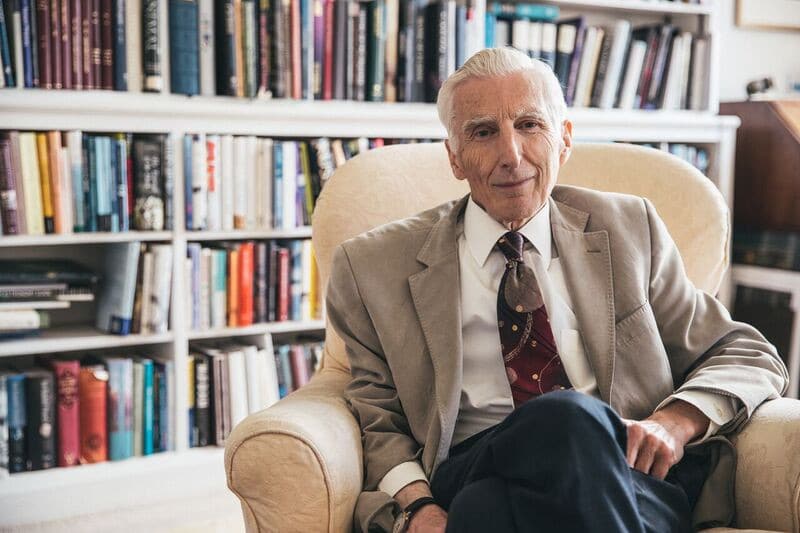On July 29, Earth.Org founder Constant Tedder had a conversation with Lord Martin Rees, Astronomer Royal of the United Kingdom, Fellow at Cambridge University’s Trinity College and a member of the House of Lords, about his 2018 book, On The Future: Prospects for Humanity. Also, click here to check out Earth.Org’s review for On The Future.
—
Martin spoke with Earth.Org about several topics, including:
- What are the main existential risks facing humanity at this time and in the near future?
- How can we prepare for them, and make sure that we are leaving behind a livable world for every member of our future generations?
- How can technology help us, and what is the danger of relying on it too much?
- Along with technology, what needs to change in terms of governance and politics? Do we need a body of global governance that can think long-term and hold nations accountable for their actions?
- And something a bit more fun, where are the aliens?
Martin splits his catalogue of existential risks into two camps, long and short-term. The most pressing long-term risk to humanity’s future is certainly, in his opinion, climate change and human alteration of the environment. Short-term risks tend to be more tangible, and thankfully more easily resolvable, such as misuse of technology, misunderstood applications of bioengineering and potential cyberthreats in an increasingly interconnected world.
In the face of these crises science and technology, if used correctly, can be our salvation. Martin makes the example of how medical science has provided us a lifeline during the COVID-19 pandemic with highly effective and rapidly developed vaccines using cutting-edge technology, and expects similar innovations will have to be employed in our food production systems as the global population grows and climates become increasingly erratic. He similarly sings the praises of renewable energy and battery storage technology, and even holds out hope for the potential of nuclear fusion, the holy grail of clean energy. But all technological advances need to happen equitably; we all need to be able to benefit from them, not only the lucky few people in the lucky few countries.
A techno-optimist, Martin also describes himself as a political pessimist. He criticises the short-term view of governments, and calls for more international oversight and capacity for long-term planning. And while technology and innovation can be great, we should not fall into the trap of thinking we are the masters of the universe. The Earth is still our home, and we should strive to protect it. Extreme techno-fixes, like evacuating a select few to Mars, is not an ideal solution in Martin’s view.
We need to be cautious with our technologies, but we also need to be bold and informed on what is to come, and how we can face it successfully. During our interview, Martin cited a famed H.G. Wells quote, “The future is going to be a race between education and catastrophe.” With his book, Lord Rees hopes to give education an edge.
You can check out the full version of Earth.Org’s conversation with Lord Martin Rees below:














